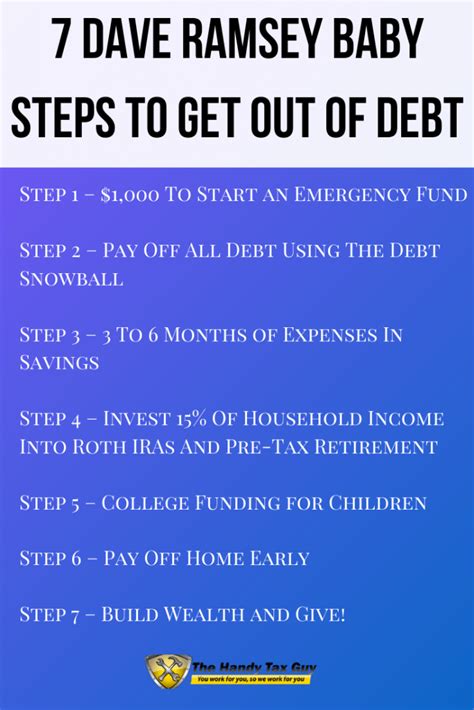
An Atlanta surgeon’s TikTok video highlighting her boyfriend’s financial situation has sparked a debate about modern dating expectations and the emergence of so-called “deal breaker” dudes, men whose earning potential or career choices are deemed insufficient by some women. Dr. Ashley, an aesthetic surgeon, shared details about her partner, revealing he earns significantly less than her, leading to discussions on societal pressures and evolving gender roles in relationships.
Dr. Ashley, known as @dr.ashleysurgery on TikTok, ignited a social media firestorm after disclosing details about her relationship with her boyfriend, particularly the income disparity between them. As an aesthetic surgeon in Atlanta, Dr. Ashley earns a substantial income, while her boyfriend’s income is considerably lower. This revelation prompted widespread discussion on TikTok and other social media platforms, focusing on the evolving expectations surrounding men’s earning potential in modern relationships and the increasing phenomenon of “deal breaker” dudes. The debate questions whether traditional gender roles are being challenged, reinforced, or simply redefined in the context of contemporary dating and partnerships.
Dr. Ashley’s initial TikTok video quickly went viral, amassing millions of views and sparking intense debate. In the video, she candidly discussed the challenges and nuances of dating someone who earns significantly less than she does. While she emphasized that her love for her boyfriend transcends financial considerations, she also acknowledged the societal pressures and potential stigmas associated with such relationships. “I love my boyfriend, but it is what it is,” she stated, acknowledging the complexities of the situation. The video served as a catalyst for a broader conversation about financial compatibility, gender roles, and relationship expectations in the 21st century.
The term “deal breaker” dudes has gained traction on social media as women increasingly voice their preferences and expectations in potential partners. This term generally refers to men whose career choices, income levels, or lifestyles are considered unacceptable by some women. While financial stability has always been a factor in relationship considerations, the rise of social media has amplified these discussions, creating a platform for individuals to openly express their criteria for a suitable partner. The focus on financial compatibility has led to discussions about whether these expectations are fair, realistic, or indicative of changing societal values.
The debate surrounding Dr. Ashley’s video and the concept of “deal breaker” dudes extends beyond mere financial considerations. It touches upon broader issues of gender roles, societal expectations, and the evolving dynamics of modern relationships. Traditional gender roles often placed the onus on men to be the primary breadwinners, while women were expected to focus on domestic responsibilities. However, as women increasingly enter the workforce and achieve professional success, these traditional roles are being challenged and redefined.
The discussion also raises questions about the value placed on different types of labor and the societal perception of success. While high-paying careers are often viewed as desirable, other professions that contribute to society in meaningful ways may not be as financially rewarding. The emphasis on financial success as a primary determinant of a partner’s worth raises concerns about the potential devaluation of other important qualities, such as emotional intelligence, compassion, and shared values.
The comments and reactions to Dr. Ashley’s video reflect a diverse range of perspectives on these issues. Some viewers praised her honesty and willingness to discuss a topic that is often considered taboo. Others criticized her for seemingly prioritizing financial success over other qualities in a partner. Still others expressed concern about the potential for such discussions to perpetuate harmful stereotypes and reinforce gender inequality.
One commenter wrote, “It’s refreshing to see someone being honest about the financial realities of modern relationships.” Another commented, “Love shouldn’t be about money. It’s about connection and compatibility.” Yet another remarked, “This is just another example of how societal expectations put pressure on men to be providers.”
Dr. Ashley responded to some of the comments, clarifying her position and emphasizing that her love for her boyfriend is genuine. She explained that her intention was not to judge her boyfriend or diminish his worth, but rather to open a dialogue about the complexities of navigating relationships in a society that often places undue emphasis on financial success. She also acknowledged that her situation is unique, given her profession and income level, and that her experiences may not be representative of all women.
“I want to be clear that I love and respect my boyfriend,” Dr. Ashley stated in one of her response videos. “He is a kind, intelligent, and supportive partner. My intention was never to make him feel bad or to suggest that his worth is tied to his income. I simply wanted to share my experiences and start a conversation about the challenges of dating in the modern world.”
The discussion surrounding Dr. Ashley’s video has also highlighted the evolving role of social media in shaping relationship expectations and norms. Platforms like TikTok and Instagram have become spaces where individuals can openly share their experiences, seek advice, and connect with others who share similar perspectives. However, these platforms can also amplify unrealistic expectations and promote harmful stereotypes.
The curated nature of social media often presents an idealized view of relationships, where individuals showcase their successes and downplay their challenges. This can lead to feelings of inadequacy and pressure to conform to unrealistic standards. The constant exposure to seemingly perfect relationships can also create a distorted perception of what is normal or attainable.
Relationship experts suggest that individuals should be mindful of the potential impact of social media on their relationship expectations and focus on building genuine connections based on shared values and mutual respect. They also emphasize the importance of open communication and honesty in addressing financial issues and other challenges that may arise in a relationship.
Dr. Brenda Wade, a relationship psychologist, commented on the phenomenon: “It’s important for couples to have open and honest conversations about their finances, values, and expectations. Money can be a source of conflict in relationships, but it can also be a tool for building a strong and sustainable partnership. The key is to approach these conversations with empathy and understanding, rather than judgment or criticism.”
The rise of “deal breaker” dudes and the focus on financial compatibility in relationships also raise questions about the future of dating and partnerships. As societal norms continue to evolve and women increasingly achieve economic independence, the traditional model of the male breadwinner may become less relevant. This could lead to more egalitarian relationships where both partners contribute financially and share responsibilities.
However, it is also possible that these trends could exacerbate existing inequalities and create new forms of discrimination. If financial success becomes the primary determinant of a partner’s worth, individuals who are not financially well-off may face increased difficulty finding partners. This could disproportionately affect marginalized groups who already face systemic barriers to economic advancement.
Ultimately, the debate surrounding Dr. Ashley’s video and the concept of “deal breaker” dudes reflects the complex and evolving nature of modern relationships. There are no easy answers or universal solutions to the challenges that couples face. The key is to approach relationships with open minds, empathy, and a willingness to adapt to changing circumstances.
The discussion generated by Dr. Ashley’s TikTok also highlights the importance of financial literacy and responsible financial planning in relationships. Couples who have a clear understanding of their financial situation and a shared plan for the future are more likely to build a strong and sustainable partnership. This includes discussing income, expenses, debts, and savings goals.
Financial experts recommend that couples establish a joint budget, track their spending, and regularly review their financial progress. They also suggest seeking professional advice from a financial planner or counselor if needed. By taking a proactive approach to financial planning, couples can reduce the risk of conflict and build a secure financial future together.
The situation also underscores the necessity for individuals to define their own values and priorities in relationships, rather than blindly adhering to societal expectations. What constitutes a “deal breaker” is highly subjective and depends on individual circumstances and preferences. Some individuals may prioritize financial stability, while others may place greater emphasis on emotional connection, shared interests, or personal growth.
It is important for individuals to reflect on their own values and communicate them clearly to their partners. This can help to avoid misunderstandings and ensure that both partners are on the same page. It can also empower individuals to make informed decisions about their relationships based on their own needs and desires.
Moreover, the focus on financial compatibility should not overshadow the importance of other essential qualities in a healthy relationship, such as trust, respect, communication, and emotional support. These qualities are essential for building a strong and lasting partnership, regardless of financial circumstances.
Couples who prioritize these qualities are more likely to weather financial challenges and build a fulfilling and meaningful relationship. They are also more likely to adapt to changing circumstances and support each other’s personal and professional growth.
In conclusion, the debate surrounding Dr. Ashley’s video and the concept of “deal breaker” dudes reflects the complex and evolving nature of modern relationships. The emphasis on financial compatibility, the rise of social media, and the changing roles of men and women are all contributing to a redefinition of relationship expectations and norms. While financial stability is undoubtedly important, it should not overshadow the importance of other essential qualities, such as trust, respect, communication, and emotional support. Ultimately, the key to building a strong and sustainable partnership is to approach relationships with open minds, empathy, and a willingness to adapt to changing circumstances. Individuals should also define their own values and priorities in relationships and communicate them clearly to their partners.
The social media storm that followed Dr. Ashley’s video provides valuable insight into how societal perceptions of success, gender roles, and personal worth are interwoven in the context of modern relationships. It is a reminder that open dialogue and mutual respect are essential for navigating the complexities of building meaningful connections in an ever-evolving world. The discussion serves as a call to examine our own biases and expectations, promoting a more inclusive and understanding approach to dating and relationships.
The long-term impact of these discussions remains to be seen, but it is clear that they are contributing to a broader cultural shift in how we think about relationships and partnerships. As societal norms continue to evolve, it is essential that we engage in open and honest conversations about the challenges and opportunities that lie ahead. By doing so, we can create a more equitable and fulfilling future for all. FAQ: Atlanta Surgeon’s Boyfriend & the Rise of “Deal Breaker” Dudes
-
What is the main topic of the news article?
- The article discusses the debate sparked by an Atlanta surgeon’s TikTok video about her boyfriend’s lower income, leading to broader conversations about financial compatibility, gender roles, and the rise of “deal breaker” dudes in modern dating.
-
Who is Dr. Ashley, and what did she reveal in her TikTok video?
- Dr. Ashley, known as @dr.ashleysurgery on TikTok, is an aesthetic surgeon in Atlanta. She revealed that her boyfriend earns significantly less than she does, which initiated discussions about financial expectations in relationships.
-
What are “deal breaker” dudes, and why is this term relevant to the discussion?
- “Deal breaker” dudes is a term used to describe men whose career choices, income levels, or lifestyles are deemed unacceptable by some women. The term is relevant because Dr. Ashley’s video brought attention to the increasing focus on financial compatibility and whether men meet certain financial expectations.
-
How do traditional gender roles play into the debate about financial compatibility in relationships?
- Traditional gender roles often placed the onus on men to be the primary breadwinners. However, with more women entering the workforce and achieving professional success, these roles are being challenged. The debate questions whether these traditional expectations still hold weight in modern relationships.
-
What are some of the diverse perspectives and reactions to Dr. Ashley’s video and the topic of financial expectations in relationships?
- Some viewers praised Dr. Ashley’s honesty, while others criticized her for prioritizing financial success. Some expressed concern about perpetuating harmful stereotypes and reinforcing gender inequality. The responses highlight the varying opinions on financial compatibility versus emotional connection in relationships.
-
What are some of the potential negative impacts of focusing heavily on financial compatibility in relationships?
- Overemphasizing financial success can devalue other important qualities, such as emotional intelligence, compassion, and shared values. It can also lead to discrimination against those who are not financially well-off and exacerbate existing inequalities.
-
How does social media contribute to the discussion surrounding relationship expectations and financial compatibility?
- Social media platforms can amplify unrealistic expectations and promote harmful stereotypes by presenting idealized views of relationships. This can lead to feelings of inadequacy and pressure to conform to unrealistic standards.
-
What advice do relationship experts offer regarding financial discussions in relationships?
- Relationship experts recommend open and honest conversations about finances, values, and expectations. They emphasize the importance of empathy, understanding, and responsible financial planning in building a strong and sustainable partnership.
-
How might the evolving roles of men and women impact the future of dating and partnerships?
- As societal norms continue to evolve and women achieve greater economic independence, the traditional male breadwinner model may become less relevant. This could lead to more egalitarian relationships or potentially exacerbate inequalities if financial success becomes the primary determinant of a partner’s worth.
-
What are some essential qualities, besides financial stability, that are important in a healthy relationship?
- Essential qualities include trust, respect, communication, emotional support, shared values, and a willingness to adapt to changing circumstances.
-
What did Dr. Ashley say in response to the backlash she received following her TikTok video?
- Dr. Ashley clarified that she loves and respects her boyfriend and that her intention was not to diminish his worth or suggest that his value is tied to his income. She aimed to start a conversation about the challenges of dating in the modern world.
-
What role does financial literacy play in maintaining healthy relationships?
- Financial literacy is crucial for couples as it enables them to have a clear understanding of their financial situation, develop a shared plan for the future, and reduce the risk of conflict related to money matters.
-
How should individuals define their values and priorities in relationships to avoid adhering to societal expectations blindly?
- Individuals should reflect on their personal values and communicate them clearly to their partners. What constitutes a “deal breaker” is subjective and depends on individual circumstances and preferences.
-
What is the overarching message regarding the complexities of modern relationships highlighted by the discussion around Dr. Ashley’s video?
- The overarching message is that modern relationships are complex and evolving. Open-mindedness, empathy, adaptability, and a focus on essential qualities beyond financial stability are vital for building strong and sustainable partnerships.
-
How does the article address potential biases and expectations related to dating and relationships?
- The article calls for an examination of personal biases and expectations, promoting a more inclusive and understanding approach to dating and relationships. It encourages a shift toward valuing diverse contributions beyond financial success.
-
What kind of financial advice is relevant to couples looking to build a stable relationship?
- Couples should establish a joint budget, track their spending, and regularly review their financial progress. Seeking professional advice from a financial planner or counselor can also be beneficial.
-
How does the article balance the importance of financial stability with the value of other personal qualities in a partner?
- The article acknowledges the importance of financial stability but emphasizes that it should not overshadow qualities like trust, respect, communication, and emotional support, which are crucial for a healthy and lasting relationship.
-
What are some strategies for couples to effectively manage and discuss financial challenges within their relationship?
- Strategies include maintaining open and honest communication, establishing clear financial goals together, creating a joint budget, and seeking professional financial advice when needed. Addressing financial issues proactively can prevent conflicts and build a stronger partnership.
-
In what ways can societal expectations regarding gender roles and financial contributions create pressure on individuals in relationships?
- Societal expectations can pressure men to be the primary breadwinners and women to prioritize domestic roles, leading to imbalances and dissatisfaction if these roles are not aligned with personal aspirations or financial realities.
-
What steps can individuals take to ensure they are not solely focused on financial achievements when seeking a partner?
- Individuals can prioritize self-reflection to understand their values, focus on emotional connection and shared interests, engage in open communication about expectations, and challenge societal norms that equate worth with financial success.
-
What is the significance of Dr. Brenda Wade’s quote regarding financial conversations in relationships?
- Dr. Brenda Wade’s quote underscores the necessity of open, honest, and empathetic discussions about finances, values, and expectations in a relationship, emphasizing that money can be a tool for building a strong partnership rather than a source of conflict.
-
How does the article suggest navigating potential inequalities in financial contributions within a relationship?
- The article suggests open communication, mutual respect, and a focus on shared responsibilities, regardless of financial contributions. Emphasizing teamwork and recognizing the value of different contributions can help mitigate imbalances.
-
What is the significance of acknowledging the potential devaluation of certain professions or contributions that may not be financially rewarding?
- Acknowledging this devaluation helps to challenge societal biases and promote a more holistic view of worth, recognizing that contributions to society and relationships can take many forms beyond financial success.
-
What is the role of trust and respect in maintaining a healthy relationship, especially when dealing with financial disparities?
- Trust and respect are fundamental in navigating financial disparities. They foster open communication, prevent resentment, and encourage mutual support, allowing couples to work together towards shared goals.
-
How does the article address the potential for financial success to become a barrier for individuals seeking partners?
- The article highlights the risk that prioritizing financial success can disproportionately affect marginalized groups facing systemic barriers to economic advancement, potentially creating new forms of discrimination in dating and relationships.









